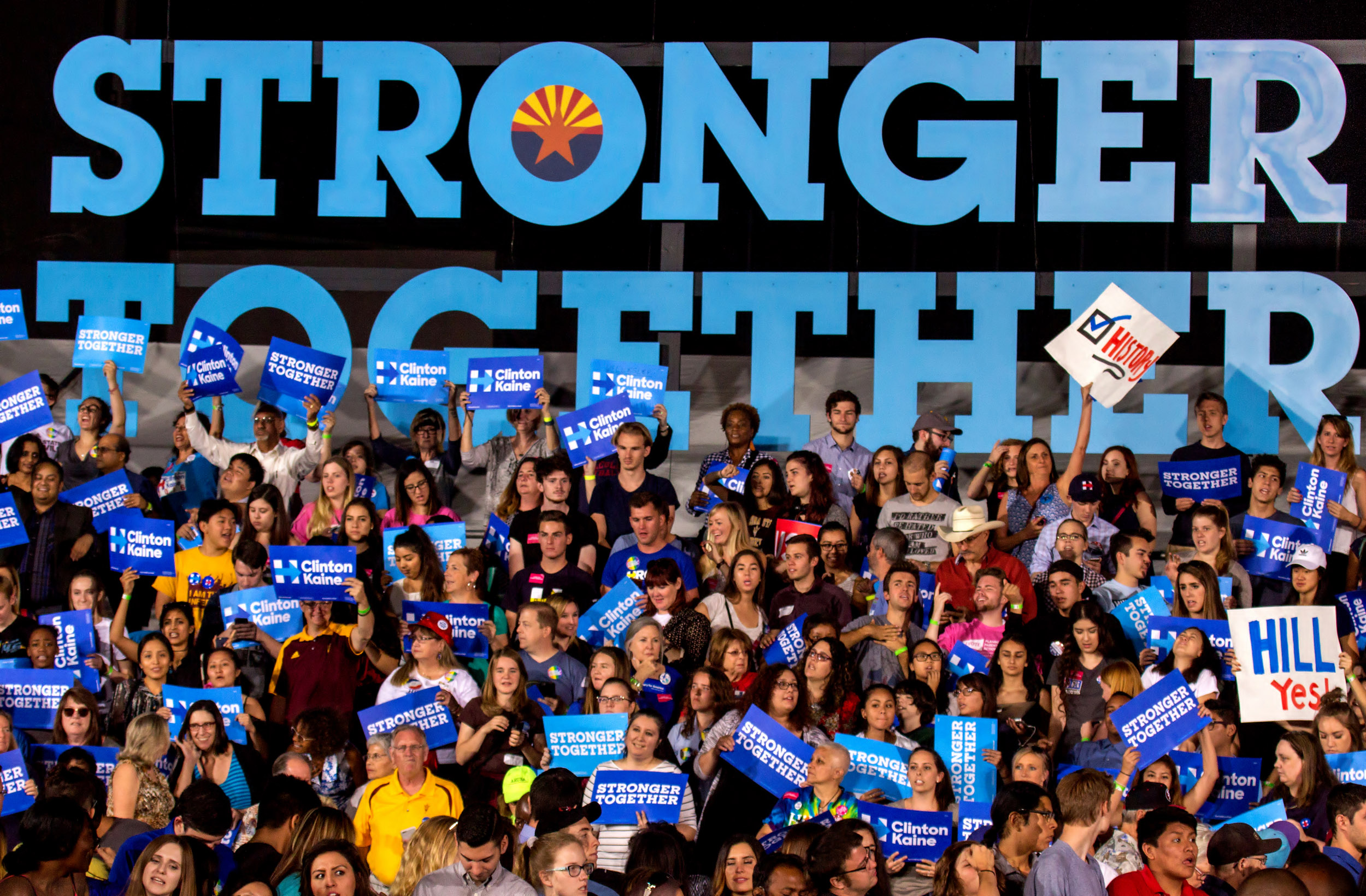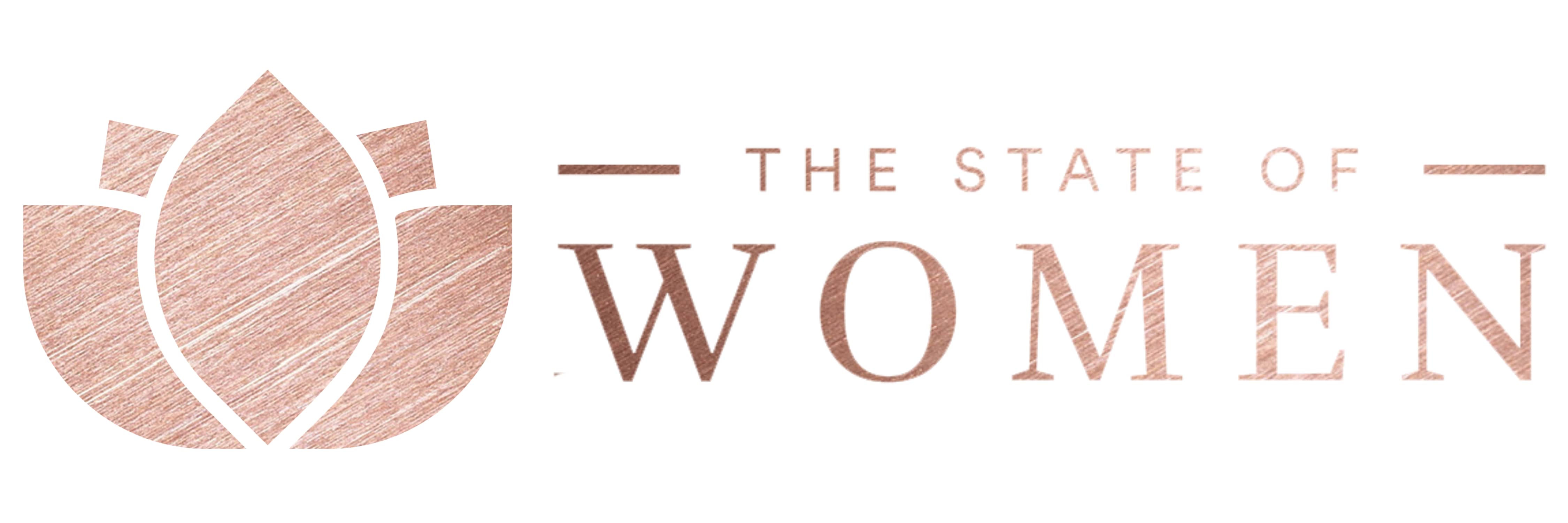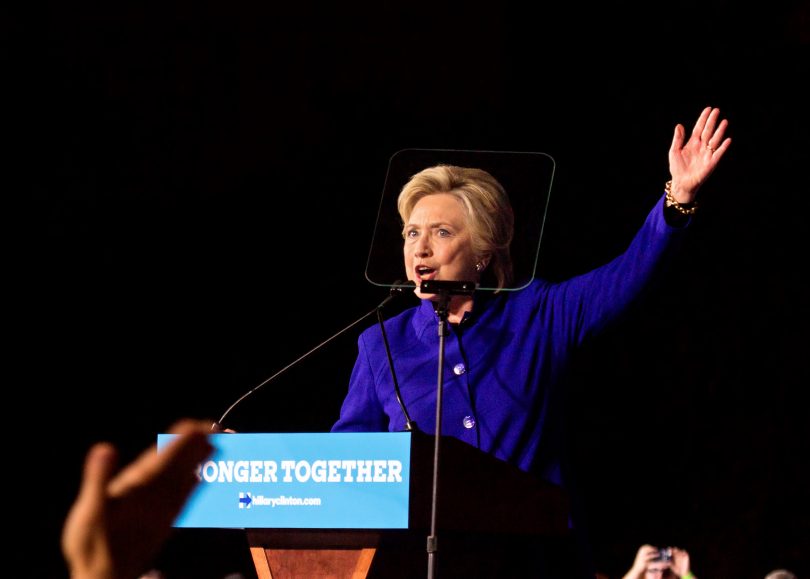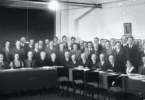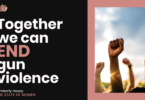The first time my son—now a 14-year-old high school freshman—took an interest in U.S. politics, it was watching two girls (Sasha and Malia Obama) as their father was inaugurated. Now the older of those girls—the daughter of our first African-American president—recently voted for the first time, in an election that almost saw the first woman President of the United States. As a mother who knows it’s essential to grow up recognizing that success and inspiration can come from anyone, I’m pretty excited that my son has had such a diverse and inspiring introduction to the leadership of our country.
We’ve had hundreds of conversations since that day, and this year we decided to attend rallies to hear both Michelle Obama and Hillary Clinton speak in person. It was one of the highlights of our year—and even though a woman still hasn’t been elected president, it was an invaluable opportunity for my son to see these strong, inspiring women. We sat down to discuss our impressions of the rallies, the conversation about women leaders and more.
Kimberly Hosey, Editor in Chief, Women Investing in Women Digital
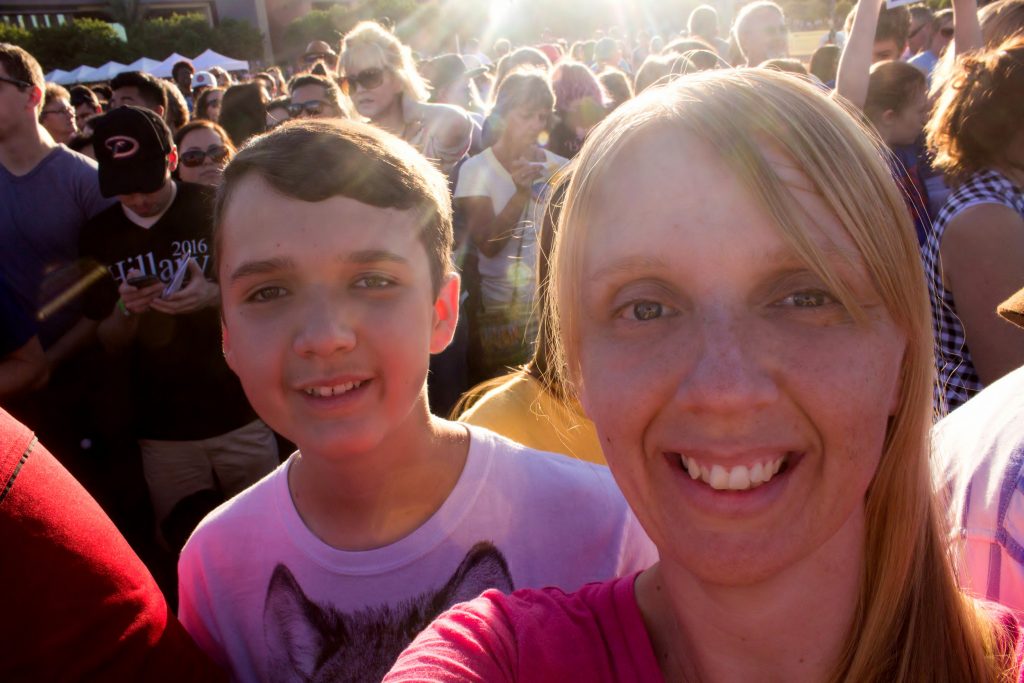
Kimberly Hosey: So what do you think about the last few weeks? We’ve been busy: Seeing Michelle Obama, seeing Hillary Clinton, learning about all the candidates, seeing how close she came … and, honestly, being pretty disappointed. What stands out?
David Hosey: Everything! I loved the rallies. I was really hoping to see Hillary Clinton win. I thought she was going to. But it was still interesting to be involved in the political process, even if I can’t vote yet. Also, I definitely wanted to learn more about politics and the candidates, especially because sometimes my friends talk about them and I feel like they don’t have all the information. Now I know more about it, and I can even speak up sometimes.
Kimberly: Is it hard to speak up?
David: A lot of the time it’s hard because we live somewhere where a lot of my friends are from families who have different political opinions from our family, so if I’m sitting at a table at school I might be the only one there with a certain view. But also, sometimes people have some bad ideas about certain issues and people, and I don’t know where to start because we’re not even talking about it the same way.
Kimberly: Like what?
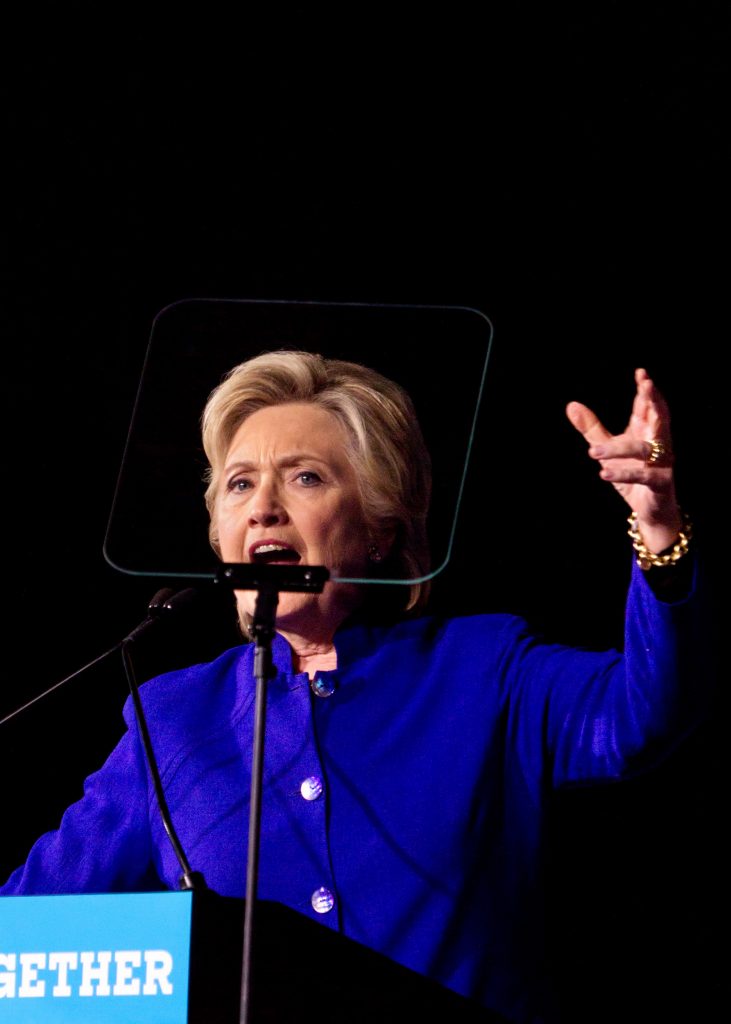 David: Well, like they don’t always understand LGBT issues or racial issues. I have multiple friends [who are LGBT], and some people think it’s dumb to even care about being sensitive to them. And lately especially, when people talk about Hillary Clinton they just say a few of the same things about her over and over and over. I understand if you don’t agree with her politics, but they just talk about her voice or her husband, or they accuse her of things without giving reasons.
David: Well, like they don’t always understand LGBT issues or racial issues. I have multiple friends [who are LGBT], and some people think it’s dumb to even care about being sensitive to them. And lately especially, when people talk about Hillary Clinton they just say a few of the same things about her over and over and over. I understand if you don’t agree with her politics, but they just talk about her voice or her husband, or they accuse her of things without giving reasons.
Kimberly: Do you think it’s because she’s a woman?
David: Sometimes, definitely. I think it’s possible to like or not like someone who’s a man or a woman, but when they just accuse her of having a harsh voice even even though male politicians also yell, or when they say she doesn’t “look right” even though she has way more experience, it definitely seems sexist.
Kimberly: I love that you’re having these conversations. Maps projecting what the voting results would have been with only young people voting are really progressive, which is great news for a lot of groups and will be a big difference no matter what. Your generation’s involvement is crucial.
What about when your friends say an opinion isn’t sexist even if you think it is?
David: I don’t know. I can tell it’s sexist in some cases no matter what they say or even if they don’t realize it, but I guess all we can really do is make sure we add in as much information as possible so they have more knowledge the next time. Also, I make sure to listen to what other teens are saying even if I think it’s wrong and then I grant them what points i can before I say something. People are more likely to listen that way, and I learn a few good points.
Do you think some of the criticism of [Clinton] is valid? How can you tell the difference?
Kimberly: I know she can be a polarizing figure, but I do think much of it is unfair. Still, I don’t love her unreservedly. I agree with the overwhelming majority of her policies and causes, and I recognize her competence and strength. So criticisms against her qualifications, yeah, I think they’re biased. If we’re talking about real, researched issues and not personal attacks, it’s more likely to be valid. In some cases the criticism is fair, but even in some of those cases the tone or the extent to which she’s criticized can be overblown compared to the criticism of almost anyone else. I think that difference can often be sexist.
David: But you can’t really prove it, can you?
Kimberly: Maybe not, most of the time. I think when they do things like side-by-side comparisons, which we saw a couple of times during the campaign, it’s pretty obvious. But otherwise, you just have to keep slogging through the conversation point by point, and you eventually make some progress. Kind of the same way Hillary Clinton has kept working so hard! OK, OK, maybe not just like that. But you get the point.
So, back to the rallies. What were your impressions of the rallies? What stuck out for you?
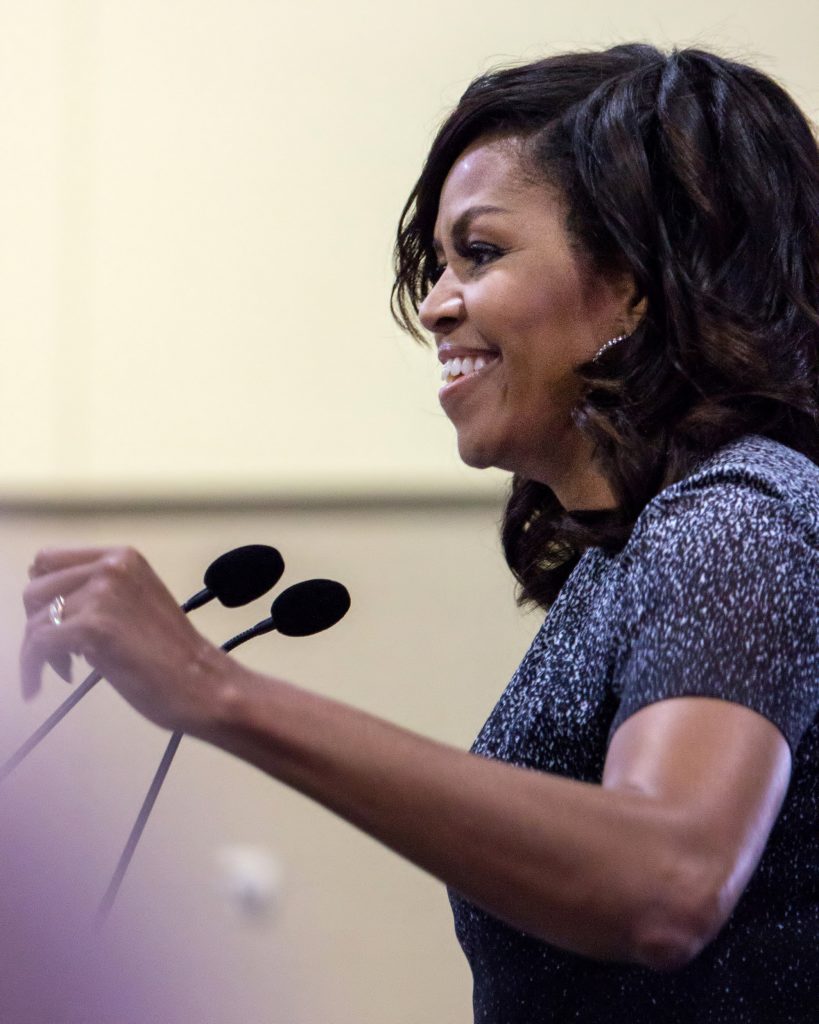 David: First, I was just excited to go! I can’t believe we got within a couple feet of Michelle Obama and Hillary Clinton; that’s cool no matter what. I really wanted to shake their hands, but still, we were some of the front people when they came to speak in Arizona, and Arizona was a big deal this year. It was cool to know there are so many other people in our state who came out for progress, women’s rights, LGBT rights, education and things like that.
David: First, I was just excited to go! I can’t believe we got within a couple feet of Michelle Obama and Hillary Clinton; that’s cool no matter what. I really wanted to shake their hands, but still, we were some of the front people when they came to speak in Arizona, and Arizona was a big deal this year. It was cool to know there are so many other people in our state who came out for progress, women’s rights, LGBT rights, education and things like that.
I think Michelle Obama’s speech was really, really inspiring. I love how she connected with the crowd, and you could tell she cared about reaching everyone. She’s one of the most inspirational people I know. I know she’s gotten a lot of hate since Barack Obama became president, and she’s been nice the whole time and also inspired everyone.
Kimberly: Why do you think she’s so inspirational to so many people?
David: It seems like she really cares, and she’s also passionate and personal with her message. She doesn’t want people voting or deciding anything out of fear and anger. She kept talking about living up to the best parts of who we are.
Kimberly: She didn’t only talk about good things, though. What about when she talked about women being harassed and assaulted, and how our girls—and boys—deserve better? She was angry about that. People were crying about it. It’s upsetting.
David: That is tough, but it was really important and good to hear. I like that she mentioned sons as well as daughters. I know girls have a lot of struggles, but the idea that boys or men are expected to act a certain way hurts us too. Feminism is against that for girls and boys. I know people who think it’s OK to talk that way about girls or other people, and they don’t even understand what feminism is sometimes. Some people think to be a feminist and support women and girls, you have to be against men and boys. That hurts girls, and the idea that we have to act masculine can hurt girls if they’re mistreated or boys when they don’t get to be themselves—or it might even make it so we’re not listened to if we’re abused.
Kimberly: So you really liked that Michelle Obama included everyone while still sending a strong message.
David: Yeah. She included everyone—boys and girls—but she did it in a way that made a good point about how we talk about girls and women. I think everyone needs to hear that.
Kimberly: I think one of my favorite parts was when she said “This is what hope looks like. It’s that belief that we can do better for our kids. That even in the darkest hours, there’s always a brighter day ahead—and if we’re willing to work for it and fight for it, we can make it happen.” You could tell she meant it, and I love that she made hope into something strong.
What do you we can do make it happen?
David: I can keep talking about it, like we were saying. That’s hard to do all the time because sometimes I just want to have a normal day, and then they bring it up. But I can speak out when something is wrong and talk to people who are willing. Also, I like the tallies of students’ votes; I always participate in those. I would like to learn more about politics and maybe volunteer in the community.
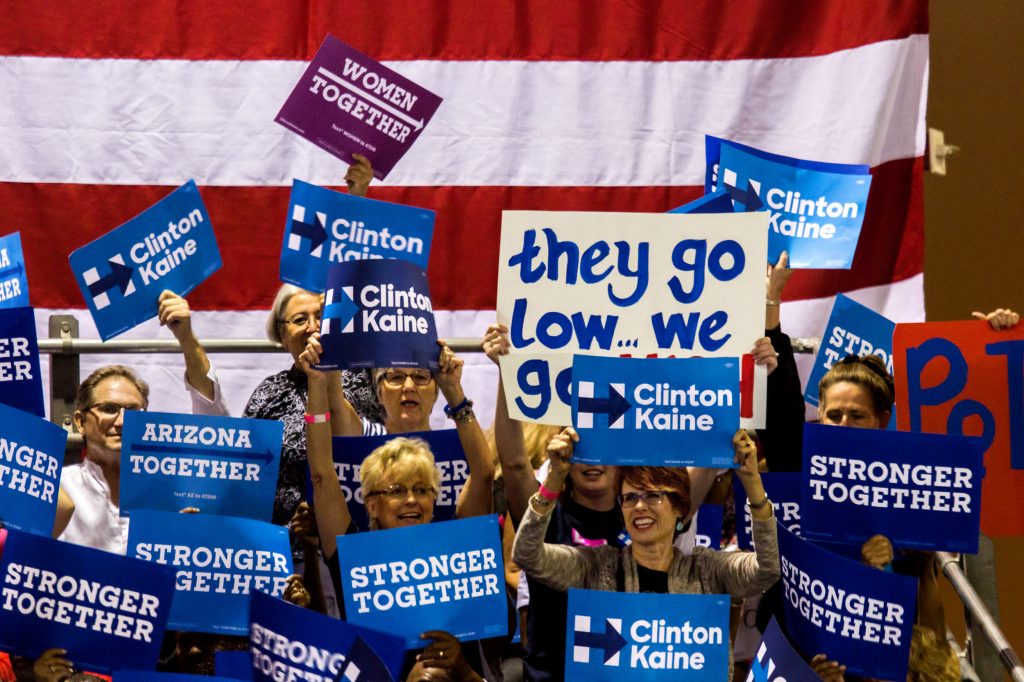 Kimberly: What do you think about the different styles we saw at Michelle Obama’s rally and Hillary Clinton’s rally? The rallies and how the two main speakers addressed the crowd were pretty different.
Kimberly: What do you think about the different styles we saw at Michelle Obama’s rally and Hillary Clinton’s rally? The rallies and how the two main speakers addressed the crowd were pretty different.
David: First, the rallies were kind of different even before we saw the main speakers. At Michelle Obama’s rally it was mostly talking and getting to know each other in the crowd; at Hillary Clinton’s rally it was like a dance party and a fired-up political rally. I thought it was cool that the styles kind of matched how they talked later: Michelle Obama was more uplifting and conversational, and Hillary Clinton was more intense and purposely persuasive. She was also more serious.
Kimberly: Did you like one more than the other?
David: Personally, I preferred one a little bit. But I liked that they both had their own way to be inspirational and strong. What did you think?
Kimberly: Michelle Obama’s style is a little more what people are comfortable with in women. I absolutely love her and I know it’s genuine, but I’ve noticed that a little bit in how people react to her. She’s the epitome of class and grace and she almost never mentions the “other” side by name. She’s easily relatable. She’s even a fashionable dresser.
I think those are all fine qualities, but I think Hillary Clinton’s good qualities are just as important: work ethic, intelligence, seriousness. She’ll call people out. Even some of the “being a politician” that gets her a bad reputation can be a good trait. She even wears pants instead of dresses or skirts most of the time. Hillary Clinton makes a point of being who she is even when it doesn’t match people’s expectations. I like that.
David: Both women are most of those things. Intelligent and inspiring and all the other good qualities.
Kimberly: Oh, absolutely. I just think we have a lot of male candidates or leaders who get to be known for being a certain way; whether that’s a good listener, a powerful speaker, a fiery leader, a cheerful man of the people or a grouchy advocate for what’s right. Men can be loud or quiet. Men can be attractive or not as attractive, thin or fat, young or old. And we don’t spend nearly as much time talking about what they wear.
David: They’re more encouraged to be strong in different ways than women are.
Kimberly: Exactly! I think that’s such a loss. Especially since Hillary Clinton was trying to integrate some of the gentle traits as well as the powerful ones. In her concession speech she said that it was “about the country we love and about building an America that’s hopeful, inclusive and big-hearted.” I like that she thinks being compassionate is strong.
David: Me too. And if more girls and women are encouraged to be that way, which they already should be, without it being something against their gender; then it will help boys too. Being understanding or anything else isn’t a male or female thing. It’s just a human thing.
